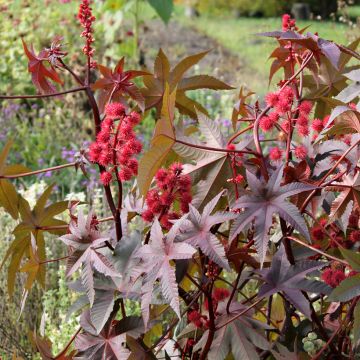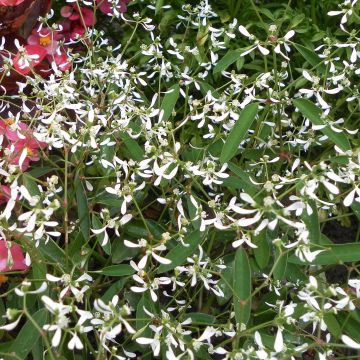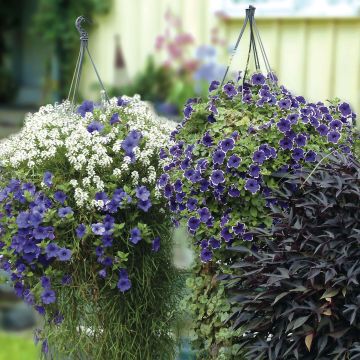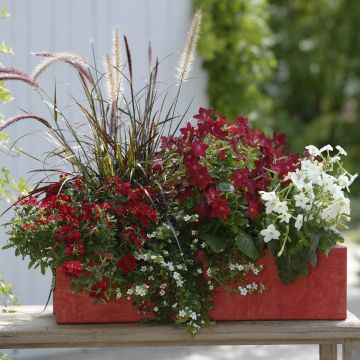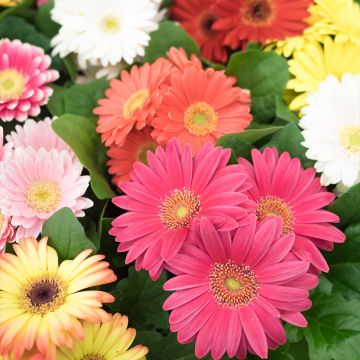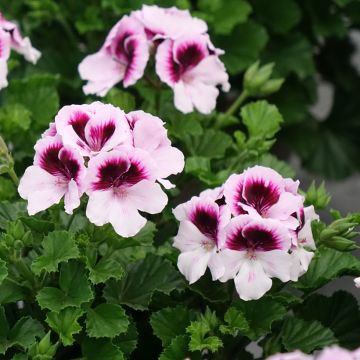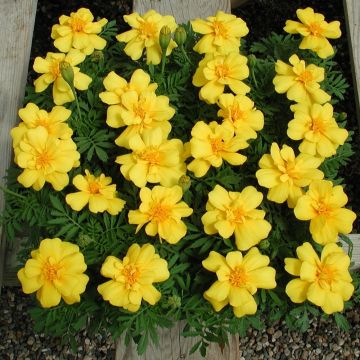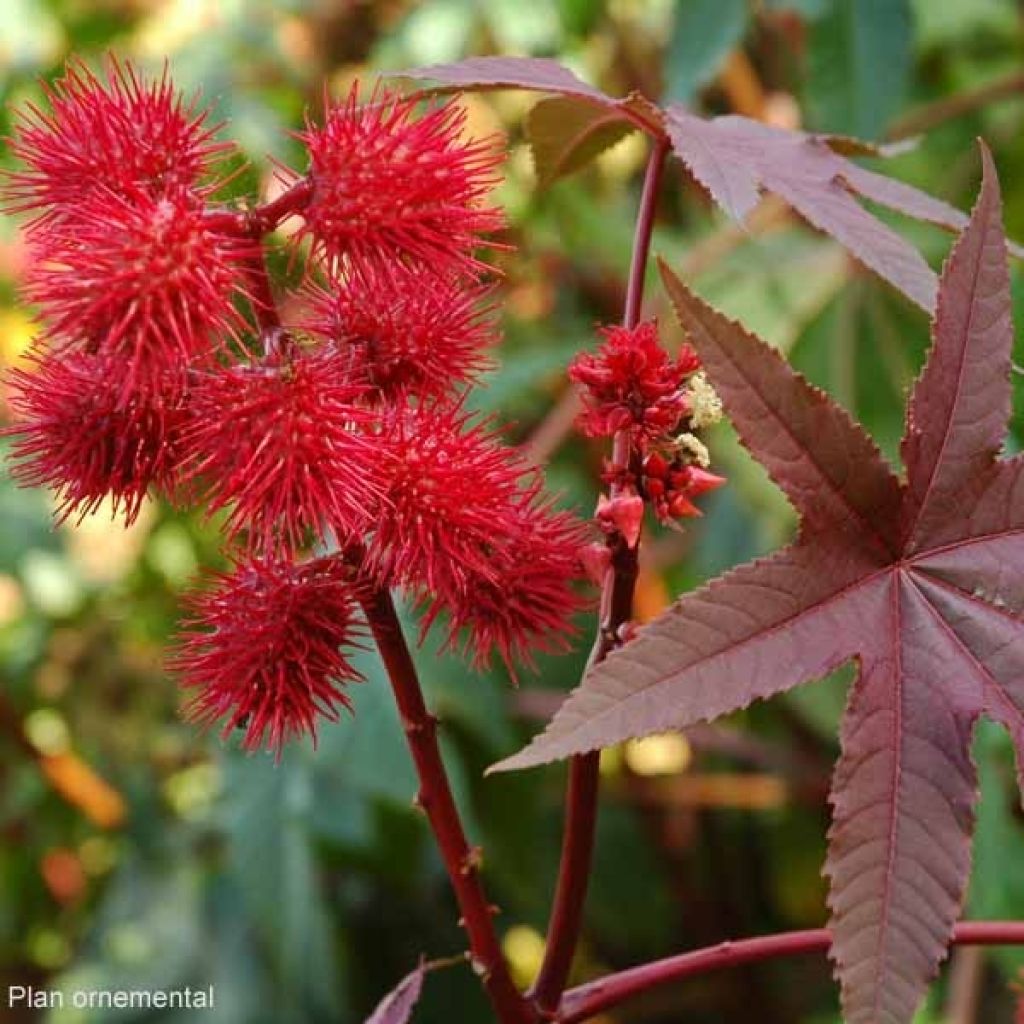

Ricinus communis Carmencita rouge, Ricin
Ricinus communis Honolulu
Ricinus communis Honolulu
Castor Oil Plant, Castor Bean
Young plants in mini root balls of good quality
SHINRA TENSEI, 14/10/2025
Special offer!
Receive a €20 voucher for any order over €90 (excluding delivery costs, credit notes, and plastic-free options)!
1- Add your favorite plants to your cart.
2- Once you have reached €90, confirm your order (you can even choose the delivery date!).
3- As soon as your order is shipped, you will receive an email containing your voucher code, valid for 3 months (90 days).
Your voucher is unique and can only be used once, for any order with a minimum value of €20, excluding delivery costs.
Can be combined with other current offers, non-divisible and non-refundable.
Home or relay delivery (depending on size and destination)
Schedule delivery date,
and select date in basket
This plant carries a 6 months recovery warranty
More information
We guarantee the quality of our plants for a full growing cycle, and will replace at our expense any plant that fails to recover under normal climatic and planting conditions.


Would this plant suit my garden?
Set up your Plantfit profile →
Description
Ricin communis 'Honolulu' is a stunning variety of common castor oil plant with dazzling colours. This beautiful plant has a tropical appearance and temperament. It develops beautifully palmate leaves tinted with burgundy. Its young leaves are a beautiful bright red. It produces velvety flower spikes, which turn into round and spiky red fruits. It is a fast-growing plant. This frost-sensitive perennial is grown as an annual in our climates.
Ricin communis 'Honolulu' belongs to the Euphorbiaceae family. Its wild ancestor, the common castor oil plant, is native to Northeast Africa and Southwest Asia. It is a perennial of tropical and subtropical climates, forming a bush in its country of origin, but maintaining more modest dimensions in our climates, especially if grown in a container. The 'Honolulu' variety will still reach an average height and width of 1.75m (6ft) when planted in the ground, in the space of one season. This plant is characterised by superb foliage that is deeply palmate-lobed. It is red when young, then bright green to purple, and glossy like wax. The stems are also red. Flowering occurs from August to October. It takes the form of pyramidal clusters, with female flowers at the top and male flowers forming yellowish tufts at the base. The fruits are capsules with three prominent and rounded sides, loaded with spines. When ripe, they are scarlet red. The castor oil plant disperses by autochory: the fruit explodes violently when ripe and projects the seeds several metres away. The seeds are spread by birds and rains, and can remain dormant for several years. The plant's development cycle is rapid. All parts of the plant are highly toxic.
'Honolulu' quickly fills a corner of the garden, at little expense, for a guaranteed spectacle. To create a perfectly exotic setting, plant a Chinese windmill palm (Trachycarpus fortunei) and a Japanese banana tree (Musa basjoo) in the background. Plant it with hedychium, close relatives of ginger, or cannas.
Our advice: plant it with small annuals such as petunias and pansies. Place them in the foreground of flower beds, with the castor oil plant in the background.
Please be aware that our young plug plants are professional products intended for experienced gardeners. Upon receipt, transplant and store them under cover (veranda, greenhouse, cold frame) at a temperature above 14°C (57.2°F) for a few weeks before planting them outdoors once the risk of frost has passed.
Report an error about the product description
Flowering
Foliage
Plant habit
Safety measures
Botanical data
Ricinus
communis
Honolulu
Euphorbiaceae
Castor Oil Plant, Castor Bean
Cultivar or hybrid
ingestion
Cette plante est toxique si elle est ingérée volontairement ou involontairement.
Ne la plantez pas là où de jeunes enfants peuvent évoluer, et lavez-vous les mains après l'avoir manipulée.
Pensez à conserver l'étiquette de la plante, à la photographier ou à noter son nom, afin de faciliter le travail des professionnels de santé.
Davantage d'informations sur https://plantes-risque.info
Other Ricinus - Common Castor Beans
View all →Planting and care
Plant in spring or summer, in rich and moist soil, in a sunny location. This annual plant does not require any specific maintenance. However, it is very demanding in terms of fertilisation, so apply a fertiliser every 15 days. It is susceptible to botrytis and powdery mildew. Avoid planting the castor oil plant in windy areas as it will need staking.
Planting period
Intended location
Care
-
, onOrder confirmed
Reply from on Promesse de fleurs
Similar products
Haven't found what you were looking for?
Hardiness is the lowest winter temperature a plant can endure without suffering serious damage or even dying. However, hardiness is affected by location (a sheltered area, such as a patio), protection (winter cover) and soil type (hardiness is improved by well-drained soil).

Photo Sharing Terms & Conditions
In order to encourage gardeners to interact and share their experiences, Promesse de fleurs offers various media enabling content to be uploaded onto its Site - in particular via the ‘Photo sharing’ module.
The User agrees to refrain from:
- Posting any content that is illegal, prejudicial, insulting, racist, inciteful to hatred, revisionist, contrary to public decency, that infringes on privacy or on the privacy rights of third parties, in particular the publicity rights of persons and goods, intellectual property rights, or the right to privacy.
- Submitting content on behalf of a third party;
- Impersonate the identity of a third party and/or publish any personal information about a third party;
In general, the User undertakes to refrain from any unethical behaviour.
All Content (in particular text, comments, files, images, photos, videos, creative works, etc.), which may be subject to property or intellectual property rights, image or other private rights, shall remain the property of the User, subject to the limited rights granted by the terms of the licence granted by Promesse de fleurs as stated below. Users are at liberty to publish or not to publish such Content on the Site, notably via the ‘Photo Sharing’ facility, and accept that this Content shall be made public and freely accessible, notably on the Internet.
Users further acknowledge, undertake to have ,and guarantee that they hold all necessary rights and permissions to publish such material on the Site, in particular with regard to the legislation in force pertaining to any privacy, property, intellectual property, image, or contractual rights, or rights of any other nature. By publishing such Content on the Site, Users acknowledge accepting full liability as publishers of the Content within the meaning of the law, and grant Promesse de fleurs, free of charge, an inclusive, worldwide licence for the said Content for the entire duration of its publication, including all reproduction, representation, up/downloading, displaying, performing, transmission, and storage rights.
Users also grant permission for their name to be linked to the Content and accept that this link may not always be made available.
By engaging in posting material, Users consent to their Content becoming automatically accessible on the Internet, in particular on other sites and/or blogs and/or web pages of the Promesse de fleurs site, including in particular social pages and the Promesse de fleurs catalogue.
Users may secure the removal of entrusted content free of charge by issuing a simple request via our contact form.
The flowering period indicated on our website applies to countries and regions located in USDA zone 8 (France, the United Kingdom, Ireland, the Netherlands, etc.)
It will vary according to where you live:
- In zones 9 to 10 (Italy, Spain, Greece, etc.), flowering will occur about 2 to 4 weeks earlier.
- In zones 6 to 7 (Germany, Poland, Slovenia, and lower mountainous regions), flowering will be delayed by 2 to 3 weeks.
- In zone 5 (Central Europe, Scandinavia), blooming will be delayed by 3 to 5 weeks.
In temperate climates, pruning of spring-flowering shrubs (forsythia, spireas, etc.) should be done just after flowering.
Pruning of summer-flowering shrubs (Indian Lilac, Perovskia, etc.) can be done in winter or spring.
In cold regions as well as with frost-sensitive plants, avoid pruning too early when severe frosts may still occur.
The planting period indicated on our website applies to countries and regions located in USDA zone 8 (France, United Kingdom, Ireland, Netherlands).
It will vary according to where you live:
- In Mediterranean zones (Marseille, Madrid, Milan, etc.), autumn and winter are the best planting periods.
- In continental zones (Strasbourg, Munich, Vienna, etc.), delay planting by 2 to 3 weeks in spring and bring it forward by 2 to 4 weeks in autumn.
- In mountainous regions (the Alps, Pyrenees, Carpathians, etc.), it is best to plant in late spring (May-June) or late summer (August-September).
The harvesting period indicated on our website applies to countries and regions in USDA zone 8 (France, England, Ireland, the Netherlands).
In colder areas (Scandinavia, Poland, Austria...) fruit and vegetable harvests are likely to be delayed by 3-4 weeks.
In warmer areas (Italy, Spain, Greece, etc.), harvesting will probably take place earlier, depending on weather conditions.
The sowing periods indicated on our website apply to countries and regions within USDA Zone 8 (France, UK, Ireland, Netherlands).
In colder areas (Scandinavia, Poland, Austria...), delay any outdoor sowing by 3-4 weeks, or sow under glass.
In warmer climes (Italy, Spain, Greece, etc.), bring outdoor sowing forward by a few weeks.






























